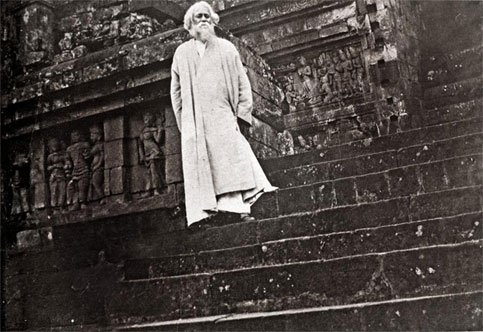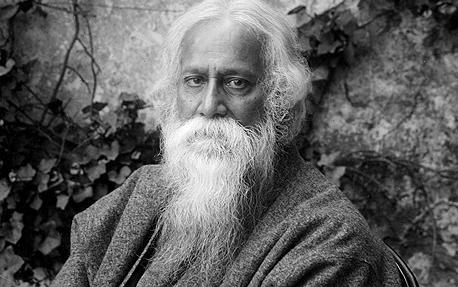 3. Poem ‘Biswashok’ (The Universal Grief) of the book PUNASCHA (in Bengali) written in mid-thirties of the 20th Century.
3. Poem ‘Biswashok’ (The Universal Grief) of the book PUNASCHA (in Bengali) written in mid-thirties of the 20th Century.
Translator’s note: When the child of a woman died, she approached Lord Buddha with the dead body imploring him to restore life to it. Buddha said he would be able to do so if the woman could bring him a grain of rice from any home where sorrow had never entered. In spite of her frantic search when she failed to locate one, Buddha could explain to her that her grief was only a tiny part of the universal grief designed in God’s creation for our ultimate welfare, though not obvious to the obscured human vision.
Tagore was afflicted by the severest tragedies, including the death of his children and other near and dear ones, very often throughout his life. With amazing calmness he faced all these. More amazing, his personal grief never found an outlet in his vast literature, leaving aside those for his personal diaries, letters etc. which happened to be published. In this poem we get a glimpse of his saint like perception of the universal grief which enabled him to regard his personal losses as trivia. A poet is the voice of all mankind. He is not meant to mourn his own losses like a miser. He asks his pen to save him from such degradation in the days of his sorrow so that he remains true to the poet’s mission. Sharing this view will surely open up a broad vision for us lesser mortals also to gain strength amidst all our weal and woe.
On the day of sorrow, I tell my pen
Put me not in shame,
Hold not before the eyes of all
The grief that is not universal.
Hide not your face in the dark
Blaze light flamboyant
Be not a miser.
Vast is the Earth,
Dazzling is its glory
Un-grieved its nature;
Raising its head in the
Sun’s domain obscure,
Unmoved, severe is its unblinking stare,
Wide stretched its chest un-quavering
Across the hills, rivers and meadows.
It is not solely mine
But of the countless,
Its trumpet sounds in all directions
Its light burns unhidden;
Its flag flutters in the vault of heaven.
Disgrace me not before this panorama;
My loss, my pain
In this context is but a grain.
The moment I forget it is solely mine
It will take its universal form;
I’ll perceive floods of sorrow
Pour down the Time
In various branches.
Rushes the great river of pathos,
Feeding Man’s life stream in every home.
The Brahmaputra (*) of tears
Swells up in billows;
At the bank of every household
Proceeds its cataclysm
From country to country.
The warmth of that eternal sorrow,
Man’s eternal grief,
Suddenly finds its way into my heart,
Its deluge gives a severe jolt
Shakes me to the bone
Immersed in the universal anguish
Mine floats into oblivion
Who knows why!
To-day I invoke my pen
Put me not in shame.
Let its gift overflow the banks,
Its bounty hide calamity, my very own,
Link my mourning
With the vast Universal melody
In thousands of cadence.
(*) Brahmaputra is known as the river of sorrow in Assam, the Easternmost state of India, as its devastating flood is the cause of misery of a large populace there nearly every year.





